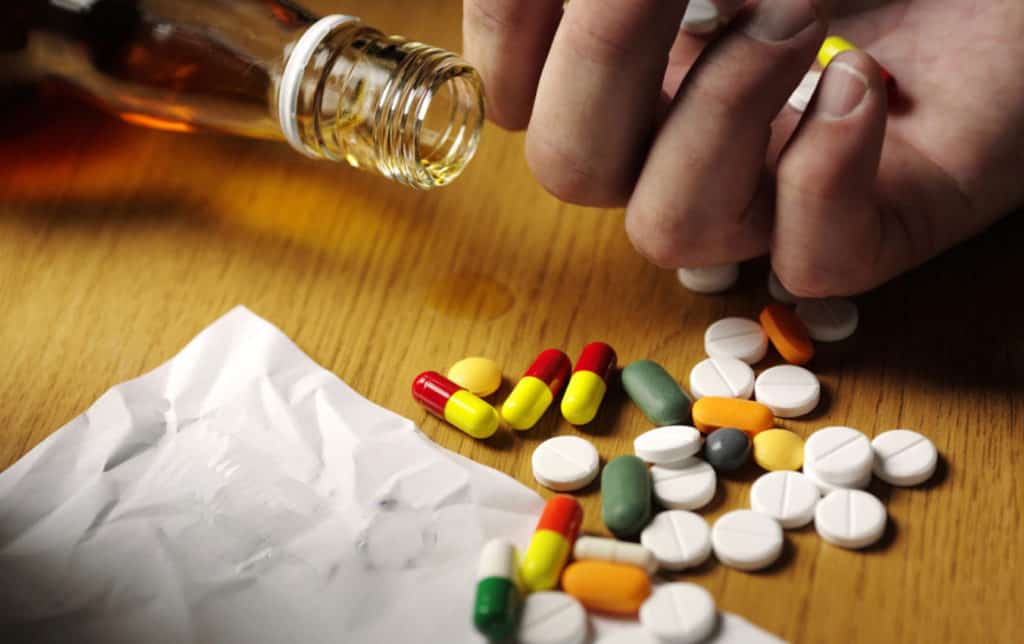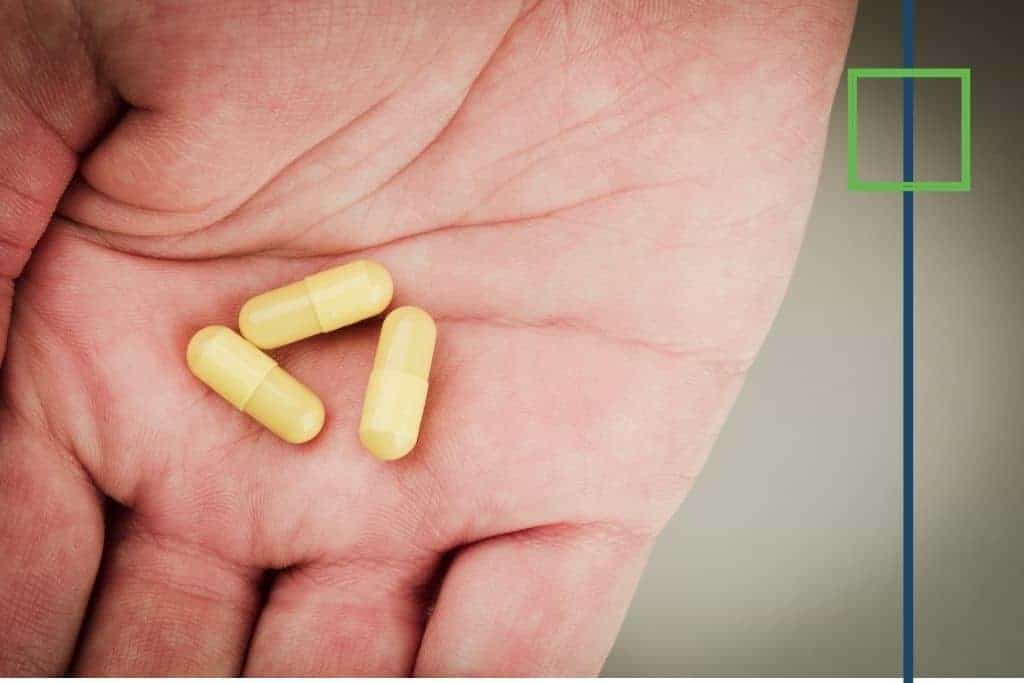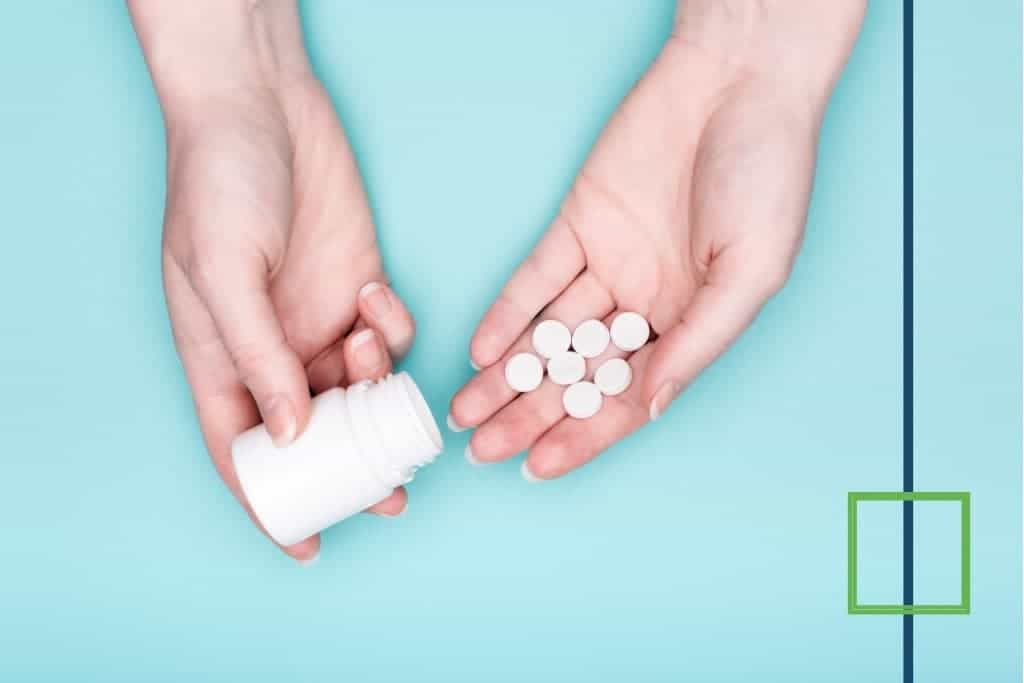What is Phenibut?
Nootropic drugs that can enhance cognitive function are becoming increasingly popular and available for buying on the Internet. Phenibut (â-phenyl-ã-aminobutyric acid HCl) is a neuropsychotropic drug that was discovered and introduced into clinical practice in Russia in the 1960s [1]. It has anxiolytic and nootropic (cognition-enhancing) effects. It acts as a GABA-mimetic, primarily at GABAB and, to some extent, at GABAA receptors. It also stimulates dopamine receptors and antagonizes â-phenethylamine (PEA), a putative endogenous anxiogenic.
The psychopharmacological activity of phenibut is similar to that of baclofen, a p-Cl-derivative of phenibut. Although the drug is not licensed in the United States, it is available through online vendors often marketed as a dietary supplement and cognitive enhancer. However, research on the prevalence and effects of phenibut use is currently limited. Taken chronically, high doses promoted tolerance to the sedative effects over time. Chronic use has also been associated with psychosis and physical dependence.

Phenibut is widely used in Russia in different neurological and psychiatric disorders. In some Russian reference books, phenibut is listed as a tranquilizer, and in others as a nootropic agent. In reality, the drug appears to have both types of activity. It has been reported to diminish Phenibut tension, alleviate anxiety and fear, and potentiate neuroleptics and antiparkinsonian drugs. It has also been reported to enhance memory and intellectual function. It has been successfully used in the treatment of post-traumatic stress disorder, “asthenic-depressive” syndrome, stuttering, and even vestibular disorders.
How Phenibut Works
All Phenibut supplements and related products arrive at the US market mostly through e-commerce websites. FDA [2] has stated that Phenibut doesn’t even fall into the category of dietary supplements and has even issued warnings to companies, whose dietary supplements contain it.
It is unofficially used to treat anxiety, alcohol use disorder, insomnia, depression, stress, and many other conditions. There is no good scientific evidence to support these uses. Phenibut is approved for use in Russia and some Eastern European countries. Don’t confuse phenibut with GABA. These are not the same.
According to studies, phenibut can penetrate the barrier between the brain and the blood. This barrier exists to stop harmful or toxic substances from traveling through the bloodstream to reach the brain. It can be used as a tranquilizer because it acts as a depressant for the central nervous system. One animal study from Pharmacological Research [3] shows that phenibut may be able to boost brain function after a stroke. Still, it has not been approved for therapeutic purposes in the United States, the European Union, or Australia.

Get Your Life Back
Find Hope & Recovery. Get Safe Comfortable Detox, Addiction Rehab & Dual Diagnosis High-Quality Care.
Hotline(844) 597-1011What is Adderall?
Adderall is a brand name for the combination of dextroamphetamine and amphetamine. It is prescribed for attention deficit hyperactivity disorder treatment and narcolepsy (sleep disorder) [1]. It is a stimulant that can cause euphoria when taken inappropriately. It can be addictive, and Adderall’s side effects can be life-threatening in some cases. One should never assume a drug is somehow “safe” to use in any quantity or conditions simply because it’s prescribed.
Taking psychoactive drugs like Adderall and mixing them with alcohol poses a great risk. Not only is mixing Adderall and alcohol bad, but it’s also deadly. Whether an Adderall and alcohol overdose happens accidentally or on purpose, it can lead to death. Adderall by itself carries an increased risk for heart problems, such as a rapid heart rate and high blood pressure. Add alcohol into the equation, and the risk factor for these side effects increases.
Is Adderall a party drug? Adderall can also be abused, and there are concerns that it is becoming a party drug. Party drugs or rave energy pills are psychoactive drugs that are used primarily for recreational purposes. Recreational use of Adderall can quickly progress to addiction, and quitting the drug can be hellish and often leads to Adderall withdrawal symptoms. Recovery professionals recommend beginning the first phase of treatment in a supervised facility. This will all start by undergoing medically assisted Adderall addiction treatment in an inpatient drug rehab.

How Adderall Works
Adderall has different effects on someone with ADHD and someone without ADHD. This drug improves attention and alertness in people with ADHD as it increases the amount of serotonin, norepinephrine, and dopamine activity levels in the brain. Adderall use in an individual without ADHD releases an excess amount of dopamine in the brain, causing the person to feel high. In addition to feelings of euphoria, an individual can experience dangerous physical and emotional side effects.
By increasing serotonin, norepinephrine, and dopamine activity levels, Adderall brings the brain down from a state of overstimulation to a state of baseline stimulation (where most people are, to begin with). Essentially, the drug targets the part of the brain responsible for controlling impulses and hyperactivity while lifting the fog of indecision and inattention. Adderall helps individuals with an ADHD diagnosis slow down and be “still” in their own minds and bodies. This adjustment of dopamine levels in the brain brings greater clarity and focus.
Can You Take Phenibut with Adderall?
It’s important to note that Adderall should not be combined with certain substances. Adderall and phenibut are often popularly used under the presumption that the combined effect can reduce anxiety. For many users, taking phenibut and amphetamines like Adderall cause a sedative effect, helping users avoid the anxiety and irritability that comes after taking Adderall. The only information available on the combination of these drugs is anecdotal. More scientific research is required to determine the potential risks.
Get Help. Get Better. Get Your Life Back.
Searching for Accredited Drug and Alcohol Rehab Centers Near You?
Even if you have failed previously and relapsed, or are in the middle of a difficult crisis, we stand ready to support you. Our trusted behavioral health specialists will not give up on you. When you feel ready or just want someone to speak to about therapy alternatives to change your life call us. Even if we cannot assist you, we will lead you to wherever you can get support. There is no obligation. Call our hotline today.
(844) 597-1011Side Effects of Mixing Phenibut & Adderall
Some people may become calm after taking phenibut. But there are negative side effects. Breathing issues, sadness, and nervous system abnormalities are a few of these adverse consequences. After using Phenibut and Adderall, some persons may also suffer the following side effects:
After a few days, it’s possible to develop a tolerance to phenibut. In order to get the same effects as when you initially started taking a drug, you must take more of it. If the dosage is lowered or they stop using phenibut, some persons who tolerate it may develop withdrawal symptoms. Insomnia or anxiety may result from this.
Phenibut Mixed With Adderall Withdrawal
When someone reaches the point when stopping or reducing their Adderall and phenibut dosage results in unpleasant withdrawal symptoms, they have developed a physical dependence on those drugs. When a user starts acting in ways that are harmful to them in order to maintain their usage, addiction to these drugs has begun.
Phenibut Interaction with Adderall
Phenibut’s safety level has not been established. Phenibut might cause sleepiness and slowed breathing. Its effects can be altered when it is combined with other nootropics and sedative drugs. Taking phenibut with sedative medications might cause breathing problems and/or too much sleepiness. It is important to remember that phenibut should not be taken with any other drugs. Chronic use of this drug promotes tolerance to its sedative action. Chronic use has also been associated with psychosis and physical dependence. The increased risk of overdose could be caused by taking this drug regularly.
A male with a history of anxiety presented at an emergency department for severe agitation and psychosis with reported phenibut addiction characterized by consumption of approximately 5 g daily for two months. His toxicology results were also positive for amphetamines ( the generic name of Adderall is amphetamine and dextroamphetamine). Another patient began using low dose phenibut (0.1-0.3 g every few days) before escalating the dose in conjunction with heavy use of alcohol one week prior to admission to the emergency department, the patient reported visual hallucinations and anxiety [4].
Phenibut Interaction with Alcohol
Phenibut is unofficially used to treat symptoms of alcohol withdrawal but mixing Phenibut and alcohol can be dangerous. In this case report, a 23-year-old male with a history of heavy phenibut and alcohol use presented to the emergency department with suicidal thoughts, somatic complaints of feeling “the cells of his brain disappearing” and abdominal pain due to “feeling his gall bladder disappear,” and seeking help with detoxification.
His history and physical revealed symptoms indicative of alcohol withdrawal, such as cold sweats, anxiety, difficulty sleeping, and visual and auditory hallucinations. But the extended period of his symptoms suggested an additive effect of his phenibut use. This unique case report illustrates how concurrent and heavy use of phenibut with alcohol may contribute to an extended and exacerbated withdrawal syndrome. This report adds to the growing number of clinical observations of the potentially harmful effects of unmoderated phenibut use in the general population.

Phenibut Side Effects
Because of the lack of clinical research on Phenibut as a prescription drug in the US, there are no definite conclusions about the cause of Phenibut’s side effects. However, reportedly the most common reason for the adverse reactions is taking over high doses of this drug.
Short-term side effects
Taking low doses does not save the user from having adverse Phenibut side effects, although the severity of these reactions differs according to the dose. It is important to note that most of these are anecdotal evidence by users and have not been extensively studied or researched.
Following are some common phenibut side effects:
- Blurred vision
- Nausea
- Anxiety
- Stomach cramps
- Persistent fatigue
- Troubles in breathing
- Muscle spasms
- Phenibut Diarrhea
- Sleepiness
- Headache
- Allergic reactions
- Depression
Higher doses can cause more Phenibut side effects. Following are some of the expected severe side effects caused by the Phenibut abuse by taking overly high doses.
They include:
- Unconsciousness (blackouts)
- Severe hangover symptoms
- Seizures
- Motor impairment
- Trouble breathing
Side Effects Caused By Long-Term Use
The most extreme long-term effects of Phenibut happen when the substance starts directly affecting the liver and the bloodstream. The most extreme consequence of long-term use of this substance is psychosis, which happens due to dissociative intoxication and prolonged withdrawal. This is a rare but possible occurrence with inotropic agents such as Phenibut.
Following are some of the long-term effects:
- Depression
- Persistent muscle spasms
- Agitation
- Heart rate escalation
- Severe fatigue
- Psychosis
- Fatty liver disease
- Eosinophilia
According to CDC [5], between 2009 and 2019 poison centers reported 80 cases when Phenibut use led to coma, including one adolescent. Besides, there was one death reported caused solely by Phenibut (no other drugs involved).
First-class Facilities & Amenities
World-class High-Quality Addiction & Mental Health Rehabilitation Treatment
Rehab Centers TourRenowned Addiction Centers. Serene Private Facilities. Inpatient rehab programs vary.
Addiction Helpline(844) 597-1011Proven recovery success experience, backed by a Team w/ History of:
15+
Years of Unified Experience
100s
5-Star Reviews Across Our Centers
10K
Recovery Success Stories Across Our Network
- Low Patient to Therapist Ratio
- Onsite Medical Detox Center
- Comprehensive Dual-Diagnosis Treatment
- Complimentary Family & Alumni Programs
- Coaching, Recovery & Personal Development Events
Side Effects of Adderall
These side effects of Adderall on the body can manifest even in someone who is taking the drug as prescribed, so it is good to be aware of them. Adderall’s side effects can be life-threatening in some cases. One should never assume a drug is somehow “safe” to use in any quantity or conditions simply because it’s prescribed. People without ADHD taking high doses of Adderall can result in more severe consequences, including cardiovascular issues. In addition, when someone dependent on this drug stops taking it, they can feel hazy, lazy, and sad.
Here are a few of the more serious consequences of Adderall misuse:
- Diarrhea
- Uncontrollable shaking
- Wide pupils and blurry vision
- Seizures
- Panic attacks
- Fainting or loss of consciousness
- Stomach cramps
- Restlessness and irritability
- Cardiac arrest
Symptoms of Adderall Addiction
The physical dependence on Adderall happens when someone has reached a situation where if they stop taking Adderall or reduce the dosage they take, they start to experience unpleasant Adderall withdrawal symptoms. Addiction to these drugs starts when the user begins to act in ways that are damaging to them in order to continue their use.
An Adderall addiction also refers to a person’s psychological or physical reliance on this drug, along with a specific set of behaviors. These people are usually unable to cope when they stop taking Adderall and will go to any length to obtain more of the prescription drugs
The brain of an addicted person is dependent on Adderall to stimulate alertness and productivity. Without Adderall, addicted people often feel tired and mentally foggy. in addition, a person who is abusing this drug may become uncharacteristically talkative or active. In group settings, they may also lose their inhibitions and appear extremely happy.
Addiction to Adderall can occur when someone takes:
- More than their prescribed dose
- Adderall for longer periods of time than prescribed
- Adderall more frequently than prescribed
World-class, Accredited, 5-Star Reviewed, Effective Addiction & Mental Health Programs. Complete Behavioral Health Inpatient Rehab, Detox plus Co-occuring Disorders Therapy.
CALL(844) 597-1011End the Addiction Pain. End the Emotional Rollercoaster. Get Your Life Back. Start Drug, Alcohol & Dual Diagnosis Mental Health Treatment Now. Get Free No-obligation Guidance by Substance Abuse Specialists Who Understand Addiction & Mental Health Recovery & Know How to Help.
Dual Diagnosis Treatment for People Abusing Adderall with Phenibut
Mixing Adderall with Phenibut may increase the side effects of both and may promote more use of both. One may be taken to offset the effects of the other, to enhance the “high,” or lessen the “crash” that can ensue when one substance wears off. Increased dosage of stimulants and intensified Phenibut consumption may cause a person’s brain chemistry to be altered. A wide variety of options are available to help the person stop taking Adderall with Phenibut and avoid serious side effects from Adderall with Phenibut abuse. Many Adderall users respond well to residential rehab programs.
If you are mixing Adderall with Phenibut and showing side effects, dependency, and tolerance to these drugs, it’s crucial to first get an accurate assessment of all the symptoms. When the symptoms have been evaluated by a mental health professional, it may be determined that another form of mental condition is present and needs a particular type of treatment. Very often, some combination of psychotherapy, medication, and/or lifestyle changes are effective for coping with functional.
Medically-Assisted Detox for Adderall and Phenibut Addiction
Detox is often considered the first stage of treatment. It will help you navigate the complicated process of Adderall and alcohol withdrawal, but it doesn’t address patterns of thought and behavior that contribute to drug use. Various treatment approaches and settings can help provide the ongoing support necessary to maintain long-term sobriety after you complete detox.
Cravings are very common during detox and can be challenging to overcome. This often leads to relapse. Constant medical care provided during inpatient treatment helps prevent relapse. Clinicians can provide necessary medication and medical expertise to lessen cravings and the effects of withdrawals.
Psychotherapy for Adderal with Phenibut Addiction
Several different modalities of psychotherapy have been used in the treatment of mental health disorders along with addiction, including:
- Cognitive Behavioral Therapy (CBT) – is an effective treatment that involves making changes in both the patterns of negative thoughts and the behavioral routines which are affecting the daily life of the depressed person for various forms of depression.
- Dialectical Behavior Therapy – is a comprehensive mental health and substance abuse treatment program whose ultimate goal is to aid patients in their efforts to build a life worth living. The main goal of DBT is to help a person develop what is referred to as a “clear mind.”
- Person-Centered Therapy – is a strategy that allows and encourages clients to understand and resolve their concerns in a safe, supportive environment.
- Solution Focused Therapy – is an approach interested in solutions that can be quickly implemented with a simple first step leading to further positive consequences.
Dual Diagnosis Treatment
Drug abuse and mental health disorders often co-occur. In many cases, traumatic experiences can result in a mental health disorder and substance abuse. Dual diagnosis rehabilitation treats both of these issues together. The best approach for the treatment of dual diagnosis is an integrated system. In this strategy, both the substance abuse problem and the mental disorder are treated simultaneously. Regardless of which diagnosis (mental health or substance abuse problem) came first, long-term recovery will depend largely on the treatment for both disorders done by the same team or provider.
Medication-Assisted Treatments
Medication-Assisted Treatments (MAT) for substance use disorders and mental health disorders are commonly used in conjunction with one another. This includes the use of medications and other medical procedures. During your rehab, the staff from your treatment facility will help you identify what caused your addiction and teach you skills that will help you change your behavior patterns and challenge the negative thoughts that led to your addiction. Sometimes, the pressures and problems in your life lead you to rely on substances to help you forget about them momentarily.
If you or a loved one are struggling with long-term Adderall with Phenibut drug abuse and a co-occurring mental health condition such as depression, contact one of our helpful treatment specialists today. We Level Up can provide information on dual diagnosis and detox programs that may fit your specific needs.

Experience Transformative Recovery at We Level Up Treatment Centers.
See our authentic success stories. Get inspired. Get the help you deserve.
Start a New Life
Begin with a free call to an addiction & behavioral health treatment advisor. Learn more about our dual-diagnosis programs. The We Level Up Treatment Center Network delivers recovery programs that vary by each treatment facility. Call to learn more.
- Personalized Care
- Caring Accountable Staff
- World-class Amenities
- Licensed & Accredited
- Renowned w/ 100s 5-Star Reviews
We’ll Call You
Sources:
[1] [4] NCBI – https://www.ncbi.nlm.nih.gov/pmc/articles/PMC6758981/
[2] FDA – https://www.fda.gov/food/cfsan-constituent-updates/fda-acts-dietary-supplements-containing-dmha-and-phenibut
[3] Pharmacological Research – https://www.sciencedirect.com/science/article/abs/pii/S1043661815301225
[5] CDC – https://www.cdc.gov/mmwr/volumes/69/wr/mm6935a5.htm
[6] Adderall Addiction Signs – We Level Up NJ


